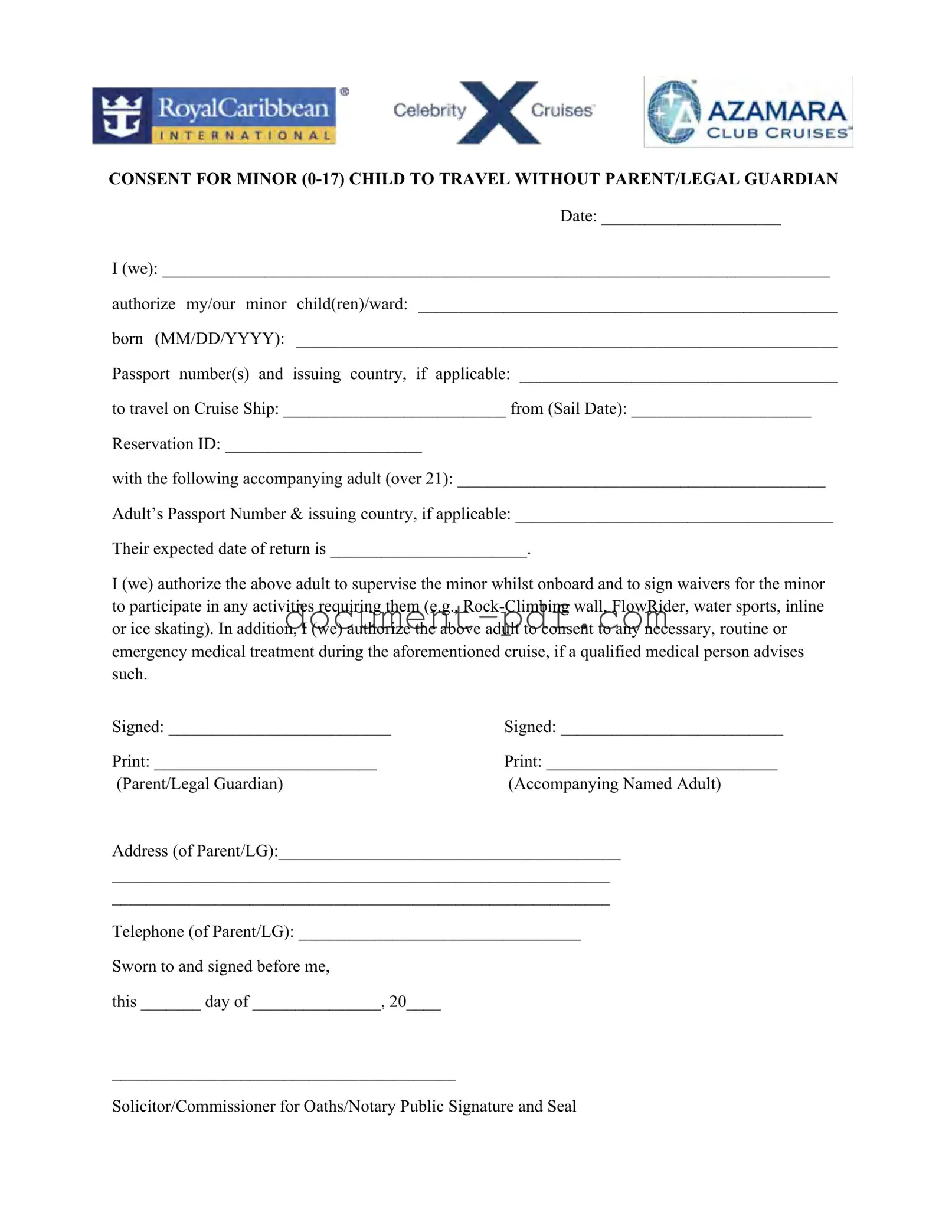Blank Royal Caribbean Parental Consent PDF Form
The Royal Caribbean Parental Consent form is a crucial document designed for parents or guardians traveling with minors. This form ensures that all necessary permissions are granted for children to participate in onboard activities and excursions. To ensure a smooth travel experience, it’s important to complete this form before your cruise; click the button below to get started!
Access Royal Caribbean Parental Consent Editor Here

Blank Royal Caribbean Parental Consent PDF Form
Access Royal Caribbean Parental Consent Editor Here
Finish the form without slowing down
Edit your Royal Caribbean Parental Consent online and download the finished file.
Access Royal Caribbean Parental Consent Editor Here
or
Click for PDF Form

